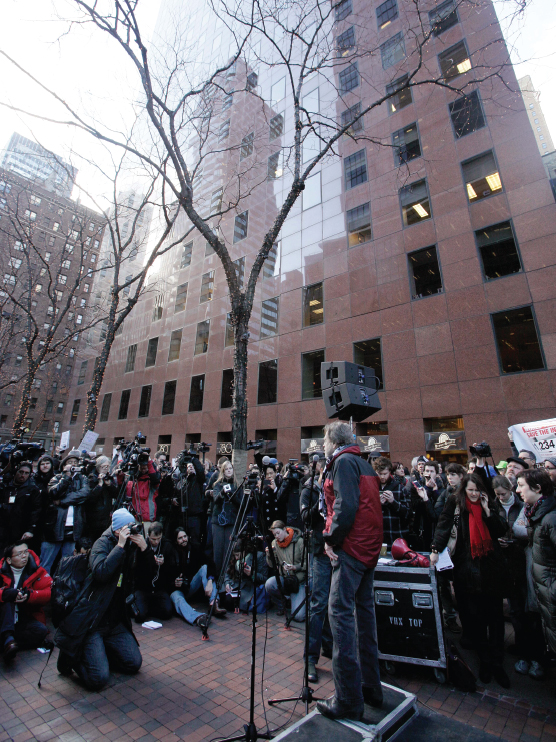Step 5: Engagement
“On deciding when you decide to become a civil disobedient—we’ve had famous ones in our career, but some of them only had to serve, like Thoreau only had to serve one day in jail, Martin Luther King served 30 days in jail. [Snowden] may be looking at life in prison.”
U.S. SEN. RAND PAUL (R-KY), 2013
The fifth stage of the critical process—engagement—encourages you to take action, adding your own voice to the process of shaping our culture and environment.
Andrew J. Bacevich argues that the ultimate legacy of people like Manning and Snowden is how we respond to the information:
Manning and Snowden … threaten the power the state had carefully accrued amid recurring wars and the incessant preparation for war. In effect, they place in jeopardy the state’s very authority — while inviting the American people to consider the possibility that less militaristic and more democratic approaches to national security might exist.
In the eyes of the state, Manning and Snowden—and others who may carry on their work—can never be other than traitors. Whether the country eventually views them as patriots depends on what Americans do with the opportunity these two men have handed us.5
“When you have Rand Paul actually comparing Snowden to Martin Luther King or Henry David Thoreau, this is madness.”
U.S. REP. PETER KING (R-NY), 2013
One way to begin responding is to learn more. Groups such as the Electronic Frontier Foundation are helpful resources in learning more about current privacy issues. You can also sign petitions in support of Manning and Snowden, or you can support efforts against them.
At a higher level, consider corresponding with your members of Congress—your local U.S. Representative and your two U.S. Senators—about your views on U.S. surveillance programs.

(members here participating in a public protest), based in San Francisco, has been a defender of free speech and privacy in policy battles affecting digital rights since 1990. Its ™Timeline of NSA Domestic Spying∫ illustrates how the NSA’s domestic spying activities have increased enormously since 2001.